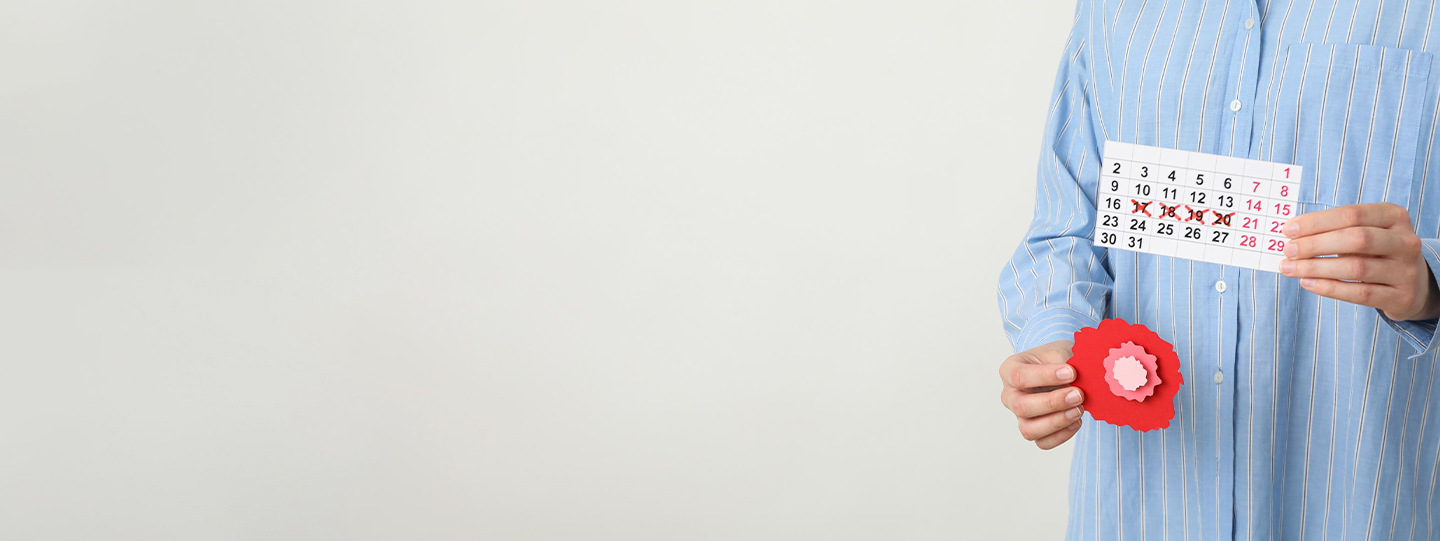

The term “periods post delivery” is used mainly to describe the time after delivery when women may begin to menstruate again. It is as normal as postpartum hair loss and signifies your body’s return to a recognised pre-pregnancy state, although it may not be as it was before.
The timing of your first period after delivery is influenced by several factors:The timing of your first period after delivery is influenced by several factors:
Breastfeeding: As for other effects of exclusive breastfeeding, the absence of a period is another probable result of hormonal shifts. The hormone that triggers the milk production process, known as prolactin, has the responsibility of inhibiting ovulation, hence no menstruation. In a simple way, if you stop breastfeeding or begin to eat solid foods, you may get your period back earlier.
Non-breastfeeding: If you are not breastfeeding or bottle-feeding your baby, then your menstrual cycle will resume within 6–8 weeks after delivery. However, variations from this course are frequent.
The first period after delivery could potentially be different from your period before delivery. You may experience:
Thus, you should not confuse lochia with your first period, even if they may seem quite similar. Afterbirth is the crimson-coloured discharge from the vagina postpartum for about the first three days; it comprises blood, mucus, and tissue. They progressively shed color and density over the course of a few weeks to months. After lochia is fully stopped, the first menstruation is expected to occur.
Age: It is found that the periods come back quicker in younger women than in those who are older.
Number of Previous Pregnancies: It may take a long period of time for pregnant women, especially those who have multiple pregnancies, to experience a delay in their period.
Health Conditions: Several conditions are known to affect a woman’s period: thyroid disease, PCOS, and endometriosis, among others.
Excessive bleeding: If one needs more than one pad or tampon per hour or if one has a long duration of heavy bleeding, he or she should see a doctor.
Prolonged bleeding: If the period has lasted for more than a week, then the individual should consult a doctor.
Severe pain: Severe menstrual pain that affects the everyday functioning of a woman should be investigated.
No period after 6 months: Most women who do not breastfeed and have not had a period in the last six months need to see a doctor to exclude other problems.
Some self care tips are listed below that you can follow to have a healthier post partum period:
Pelvic floor exercises: You can consult your doctor and improve your menstrual pain and urinary incontinence by improving the tone of your pelvic floor.
Nutrition and exercise: Proper diet and exercise affect the different aspects of a woman’s health, including menstrual health.
Stress management: It suggested the incorporation of relaxation activities such as meditation or yoga since stress can affect one’s menstrual cycle.
The return of your period after childbirth marks a significant step in your postpartum journey. While it signals your body's return to its pre-pregnancy state, it's important to remember that every woman's experience is unique. You might notice changes in your cycle, flow, or even how you feel. This guide provides information to help you understand what to expect and how to care for yourself during this time. However, it's essential to consult a healthcare provider if you have any concerns or if your symptoms are unusual. By understanding your body and seeking appropriate guidance, you can navigate this phase with confidence and ease.
Q1. When can I expect my first period after delivery?
A: The timing varies based on breastfeeding. Exclusive breastfeeding can delay the return of your period, while non-breastfeeding or bottle-feeding may lead to a sooner return, typically within 6–8 weeks.
Q2. What will my first period be like?
A: Your first period might be heavier, irregular, and potentially more crampy than before pregnancy. Hormonal fluctuations can also affect your mood.
Q3. How long does Lochia last?
A: Lochia, the postpartum vaginal discharge, usually lasts for several weeks, gradually becoming lighter in colour and less abundant.
Q4. Can I get pregnant before my first period?
A: Yes, ovulation can occur before your first period, so it's essential to use birth control if you're not ready for another pregnancy.
Q5. Is it normal to have heavy bleeding after delivery?
A: While some bleeding is expected, excessively heavy bleeding, persistent clots, or severe pain should be evaluated by a healthcare provider.
Q6. When should I consult a healthcare provider about my postpartum period?
A: Seek medical advice if you are experiencing excessive bleeding, prolonged bleeding, severe pain, or no period after six months (if not breastfeeding).
Q7. Can hormonal changes after childbirth affect my mood?
A: Yes, hormonal fluctuations can contribute to mood swings, anxiety, or postpartum depression. If you're experiencing persistent emotional difficulties, seek support from a healthcare professional.
Q8. How can I cope with emotional changes after childbirth?
A: Building a support system, practicing self-care, getting enough rest, and seeking professional help if needed can be beneficial.
Q9. Is it normal to experience heavier periods after childbirth?
A: It's common to have heavier periods in the first few months after delivery, but if the bleeding is excessive or accompanied by other concerning symptoms, consult your doctor.
